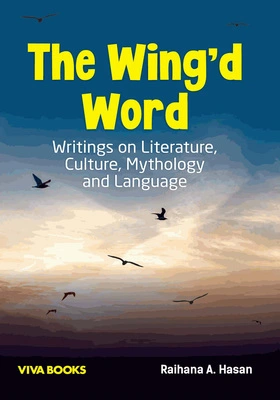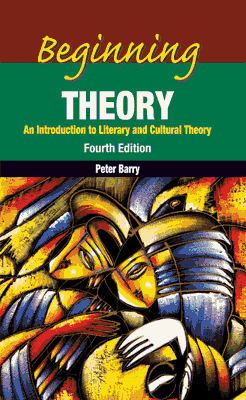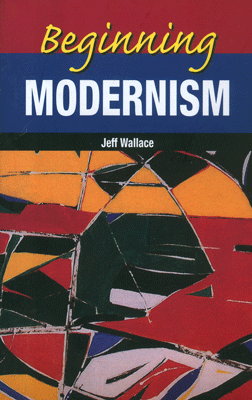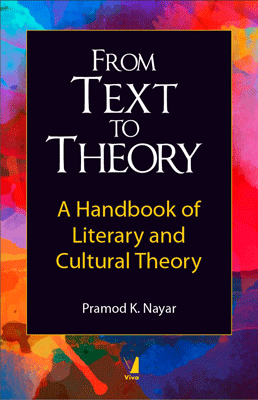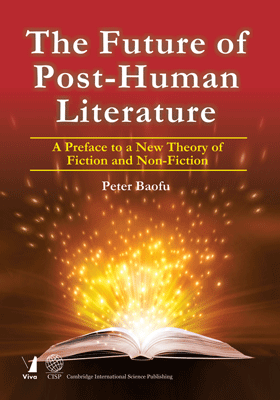
The Future of Post-Human Literature
The Future of Post-Human Literature
A Preface to a New Theory of Fiction and Non-Fiction
₹1,255.50 ₹1,395.00 Save: ₹139.50 (10%)
Go to cart-
Out of Stock
ISBN: 9788130919997
Bind: Hardbound
Year: 2012
Pages: 528
Size: 153 x 229 mm
Publisher: Cambridge International Science Publishing
Published in India by: Viva Books
Exclusive Distributors: Viva Books
Sales Territory: India, Nepal, Pakistan, Bangladesh, Sri Lanka
Description:
Is literature really so treasurable (or valuable) that, as Helen Keller once euphorically put it, "literature is my utopia"? (FQA 2011)
This euphoric valuation of literature by Keller can be contrasted with an opposing view, as Terry Eagleton (1996: 176, 178) once wrote that "there is no such thing as literature which is “really” great or “really” anything, independently of the ways in which that writing is treated within specific forms of social and institutional life....[B]y recognizing that literature is an illusion is to recognize that literary theory is an illusion too....It is an illusion...in the sense that literary theory...is really no more than a branch of social ideologies....".
Contrary to these opposing views about literature (and other ones as will be discussed in the book), literature (in relation to fiction and non-fiction) is neither possible nor desirable to the extent that the respective ideologues (on different sides) would like us to believe.
This challenge to the opposing conventional views about literature does not mean, however, that literature is worthless, or that those fields of study (related to literature) like aesthetics, cultural studies, hermeneutics, psychology, history, literary criticism, rhetoric, and so on should be dismissed too. Of course, neither of these extreme views is reasonable.
Instead, this book provides an alternative (better) way to understand the future of literature, in the dialectic context of fiction and non-fiction —while learning from different approaches in the literature but without favoring any one of them (nor integrating them, since they are not necessarily compatible with each other). This book offers a new theory (that is, the comparative-impartial theory of literature) to go beyond the existing approaches on literature in an original way.
If successful, this seminal project is to fundamentally change the way that we think about literature, from the combined perspectives of the mind, nature, society, and culture, with enormous implications for the human future and what
I originally called its "post-human" fate.
In this book:
• Introduction —The Treasure of Literature
• Fiction and Its Complicity
• Non-Fiction and Its Duplicity
• Conclusion —The Future of Literature
Contents:
List of Tables • Foreword • Acknowledgments • List of Abbreviations
Part One: Introduction • Chapter One. Introduction —The Treasure of Literature • The Euphoric Valuation of Literature • Literature in Relation to Fiction and Non-Fiction • The Diverse Sub-Fields of Literature • The Theoretical Debate • The Comparative-Impartial Theory of Literature • Theory and Meta-Theory • The Logic of Existential Dialectics • Sophisticated Methodological Holism • Chapter Outline • Some Clarifications
Part Two: Fiction • Chapter Two. Fiction and Its Complicity • The Imagination of Fiction • Fiction and the Mind • Fiction and Nature • Fiction and Society • Fiction and Culture • The Illusion of Fiction • The Future of Post-Human Literature
Part Three: Non-Fiction • Chapter Three. Non-Fiction and Its Duplicity • The Reality of Non-Fiction • Non-Fiction and the Mind • Non-Fiction and Nature • Non-Fiction and Society • Non-Fiction and Culture • The Deception of Non-Fiction •
Part Four: Conclusion • Chapter Four. Conclusion —The Future of Literature • Beyond Fiction and Non-Fiction • 1st Thesis: The Formalness-Informalness Principle • 2nd Thesis: The Absoluteness-Relativeness Principle • 3rd Thesis: The Predictability-Unpredictability Principle • 4th Thesis: The Explicability-Inexplicability Principle • 5th Thesis: The Fiction-Reality Principle • 6th Thesis: The Preciseness-Vagueness Principle • 7th Thesis: The Simpleness-Complicatedness Principle • 8th Thesis: The Openness-Hiddenness Principle • 9th Thesis: The Denseness-Emptiness Principle • 10th Thesis: The Change-Constancy Principle • 11th Thesis: The Slowness-Quickness Principle • 12th Thesis: The Expansion-Contraction Principle • 13th Thesis: The Theory-Praxis Principle • 14th Thesis: The Convention-Novelty Principle • 15th Thesis: The Evolution-Transformation Principle • 16th Thesis: The Symmetry-Asymmetry Principle • 17th Thesis: The Sofness-Hardness Principle • 18th Thesis: The Seriousness-Playfulness Principle • 19th Thesis: The Regression-Progression Principle • 20th Thesis: The Sameness-Difference Principle • 21st Thesis: The Post-Human Impartiality • Towards the Post-Human Impartiality
Bibliography • Index
About the Author:
Dr Peter Baofu is the author of 53 new theories in 44 books to provide a visionary challenge to conventional wisdom in all fields of knowledge ranging from the social sciences through the formal sciences and the natural sciences to the humanities, with the final aim for a unified theory of everything.
He is known for his pioneering works on "multilateral acoustics," "metamorphic humor," "heterodox education," "post-human mind games," "post-Earth geology," "substitutive religion," "post-cosmology," "contrarian personality," "post-ethics," "multifaceted war and peace," "post-humanity," "critical-dialectic formal science," "combinational organization," "hyper-sexual body," "law reconstruction," "comprehensive creative thinking," "hyper-martial body," "multilogical learning," "contingent urban planning," "post-capitalism," "selective geometry," "post-democracy," "contrastive advantages," "ambivalent technology," "authoritarian liberal democracy," "the post-post-Cold-War era," "post-civilization," "transformative aesthetic experience," "synthetic information architecture," "contrastive mathematical logic," "dialectic complexity," "after-postmodernity," "sophisticated methodological holism," "post-human space-time," "existential dialectics," "unfolding unconsciousness," "floating consciousness," "hyper-spatial consciousness," and other visions.
Dr Baofu earned an entry to the list of "prominent and emerging writers" in Contemporary Authors (2005) and another honorary entry in The Writers Directory (2007) — and was also interviewed on television and in newspapers about his original ideas. He was a U.S. Fulbright Scholar in the Far East. He had taught as a professor at different universities in Western Europe, the Caucasus, the Middle East, the Balkans, Central Asia, South Asia, and North America. He finished more than 5 academic degrees, including a Ph.D. from the world-renowned M.I.T., and was a summa cum laude graduate.
